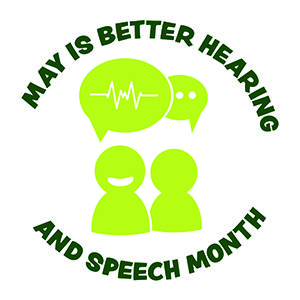Myth Exposed: The most common cause of hearing loss is advancing age.
The truth is that it is exposure to loud noise that is the number one cause of hearing loss while only 35% of people with hearing loss are older than age 64. There are nearly six million people in the U.S. between the ages of 18 and 44 with hearing loss, and more than one million are school age. Hearing loss affects all age groups. Hereditary factors and health conditions like heart disease, high blood pressure, diabetes and other circulatory problems also cause hearing loss along with certain medications like aspirin, some antibiotics and chemotherapy drugs.
Myth Exposed: Only people with serious hearing loss need hearing devices.

The need for hearing amplification is dependent on your lifestyle, your degree of hearing loss and your need for a more sophisticated level of hearing. If you are a teacher or a lawyer, for example, refined hearing is necessary to understand the nuances of communication. Therefore you may not be able to tolerate even a mild level of hearing loss. On the other hand, if you live alone or in a rural area and seldom socialize, then your tolerance level for moderate hearing loss may be higher.
Myth Exposed: If I had a hearing loss, my family doctor would have told me.
Incorrect reports the Better Hearing Institute. Their studies show that only 14% of physicians routinely screen for hearing loss during a physical.
Myth Exposed: Hearing devices will make me look “older.”
It is not the hearing devices that make one look older, it is the fact that you cannot hear, understand and communicate normally with others that make you look older.
Myth Exposed: Hearing devices aren’t worth the expense.
Research conducted by the Better Hearing Institute concluded that 9 out of 10 people indicate that the quality of their life has improved with hearing devices. Overall satisfaction with one year old hearing devices is now 78%, which is close to satisfaction ratings for most consumer electronics.
Hearing exams are the best way to detect hearing loss early, when there are more treatment options available. They enable us to identify problems before they worsen and recommend treatment to those who might otherwise struggle with the effects of hearing loss, including depression, social isolation and cognitive decline.
May is Better Hearing & Speech Month, the official month to heighten public awareness about hearing loss and speech disorders. We provide hearing solutions and invite you to call (502) 584-3573 to schedule an appointment to learn more.